![]() This article was provided in response to questions relating to ‘Why do I itch so badly soon after I start a run?’.
This article was provided in response to questions relating to ‘Why do I itch so badly soon after I start a run?’.
Doctor Andrew Bosch – resident exercise physiologist
Exercise-induced anaphylaxis: ‘Why do I itch so badly soon after I start?’
Anaphylaxis is the allergic response that people get in response, for example, to bee stings. Interestingly, this condition has been described in runners.
The syndrome is characterised by the onset during and subsequent to a training session of redness and itchiness of the skin, face, palms, and soles. Blistering, cardiovascular collapse and upper respiratory tract airway obstruction due to market swelling of the throat have also been reported in severe cases.
Gastrointestinal symptoms such as colic, nausea, or diarrhea can also occur and headache can be present. The attacks, which can last from 1 to 4 hr, are often totally unpredictable and do not necessarily occur with every exercise session. I have encountered runners who are absolutely fine if they are exercising regularly, but the first few training sessions after not training for a few days to a week, results in a predictable “attack”. In these cases the answer is simple: Don’t stop exercising for too many days at a time!
More generally, it seems likely that the syndrome occurs in susceptible persons only when exercise follows the exposure to specific proteins (antigens) to which they are allergic. Sources of antigens that have been identified include shellfish, caffeine, aspirin, wheat and celery. The long-term prevention of the condition requires the identification and avoidance of the specific antigens that provoke the attacks.
Treatment by taking an antihistamine before exercise sometimes helps, but this is probably not an optimal long-term approach. On the other hand, many people take antihistamines for prolonged periods of time to control common allergies such as occurs during the “pollen season”.
Consultation with a medical practitioner to discuss options available for chronic use if it is found that an antihistamine controls the condition in persistent cases of exercise-induced anaphylaxis, is recommended.
Article by Andrew Bosch Head of TheABC
View other articles of interest under the Sports Doctor section:
- When a bug strikes
- A run a day keeps you out of the doctor’s office
- Runner’s Trots
- Human body – Heart and Lungs
- Upper Respiratory Infections
- Exercise and the Immune system
With more topics to be added.
Other Topics of interest :

















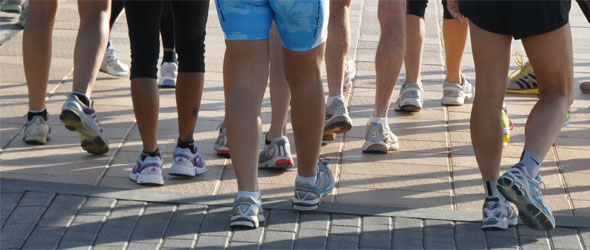

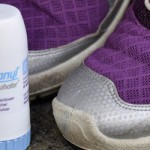
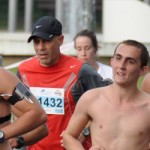
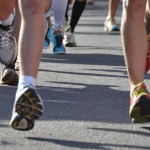


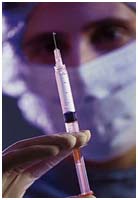


Have had excericse induced itching for over 10 years. If I went for a walk/hike I had to take antihistamine (Loratadine) around an hour before. Mine gets really bad if the weather is cold.
Recenlty discovered that I can keep the itching away for around 2 hours or so if i take 2 capsules of the herb Gotu Kola- not as long lasting as the antihistamine, but it works faster.
Deep yogic breath holding helps when i get an attack, as does alkalising my body with Barley grass drinks etc.
Currently taking an antifungal ,alkalising and oxygenting approach to my joint problems – interested to see how this affects the itch, because when my joints get bad the itch tolerance is worse.